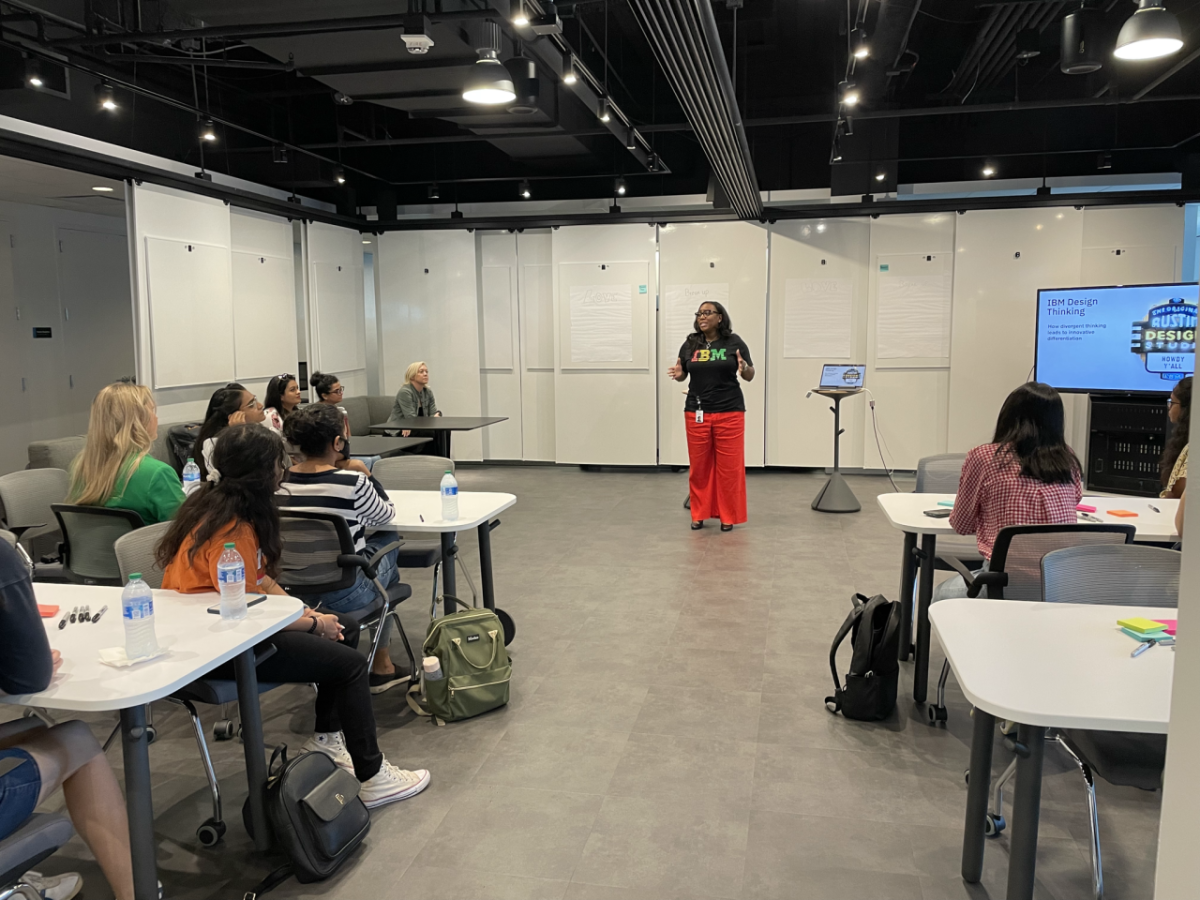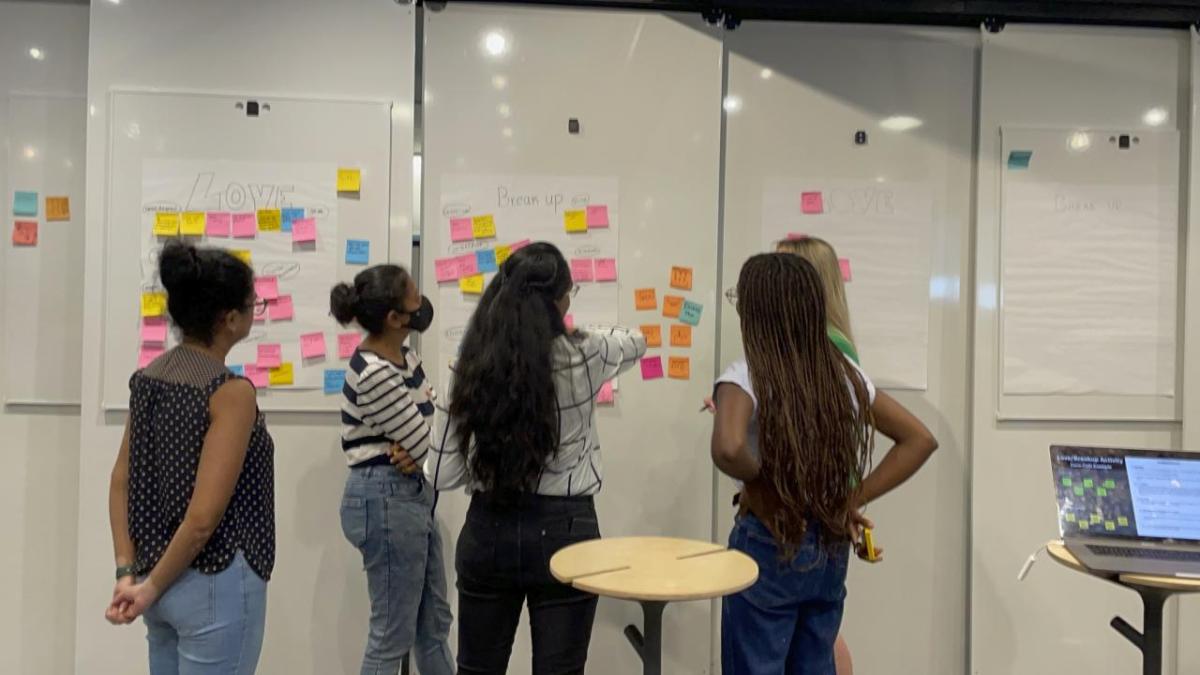Upskilling Austin’s Vibrant Workforce for the In-Demand Jobs of Tomorrow
By Jason Kelley | IBM GM & Managing Partner, Strategic Partners & Ecosystem, Senior Leader for the State of Texas
Originally published by Austin Chamber
Austin’s job market growth is outpacing the rest of the U.S. According to Workforce Solutions Capital Area, 172,194 new jobs were added to the Austin-Round Rock-Georgetown metro area between 2016 and 2021, representing a 16.0% job growth increase and far surpassing the U.S.’s 1.8% increase during the same period. In the five-year period from 2021 to 2026, our region is forecasted to grow an additional 12.5%, nearly three times more than what the U.S. is expected to grow.
Failing to meet this demand for qualified local candidates could hinder our region’s continued development. All employers worldwide are having difficulty finding skilled workers to fit their needs for the in-demand digital jobs of tomorrow. According to the World Economic Forum (WEF), in 2021 alone, the number of available jobs in the technology sector nearly doubled; however, the pool of available applicants shrank by nearly 25%. As a result, the WEF says companies estimate that 50% of all employees will need reskilling. Closing this digital skills gap could add $11.5 trillion to global GDP by 2028. This skills gap poses a hurdle to global economic growth, and inevitably, growth in Austin as well.
One way to close the skills gap is by prioritizing education and training initiatives that reflect the evolving demands of labor markets that are frequently challenged by technological disruption. However, today, there is no system in place that encourages job applicants and employers to validate credentials earned outside traditional academic institutions, making it difficult for companies to weigh credentials equally with degrees. As a result, many qualified candidates are often overlooked. We need a modernized system where learners’ credentials are verifiable and adopt frameworks that would make them valued by employers.
Skills-building, like innovation, is a team sport. As companies scramble to hire qualified employees, particularly from diverse cultural and socioeconomic backgrounds, IBM and its partners are investing in the future of work. Here’s how: to help close this gap, we have adopted an ecosystem approach that helps solve the credentials dilemma and create a more diverse pipeline of candidates for technology-related jobs. We created a clear ecosystem roadmap with academic and industry partnerships and are leveraging existing programs and career-building platforms. Our inclusive skills-first approach helps reduce systemic issues and makes the learning-to-earning journey more attainable for underrepresented communities.
Solving the Credentials Dilemma
In October 2021, IBM announced its commitment to skill 30 million people globally by 2030 to create equitable and economic opportunities while also addressing a STEM job skills shortage impacting the business community. IBM has also reduced the percentage of U.S. job postings that require a four-year degree to 50%, resulting in more inclusive opportunities and a more diverse range of candidates. This is particularly critical in Texas where 54% of jobs require skills training beyond high school but not necessarily a four-year degree, according to the National Skills Coalition.
A major component of IBM’s skills-first approach is delivered through our education program, IBM SkillsBuild, offering access to more than 1,000 online, self-paced courses in 19 languages. Learners can gain knowledge of crucial professional workplace skills like design thinking, collaboration, and problem-solving, in addition to learning about technical disciplines, such as data analytics, cybersecurity, and cloud computing – all free of cost. Participants can earn IBM-branded digital credentials to certify their newly attained skills, and a global network of partners, including some here, in Austin, help connect these learners with local job opportunities.
Mobilizing the Austin Ecosystem
IBM's efforts mobilize the private sector across the globe to expand opportunities for underrepresented and historically disadvantaged communities. Some examples in the Austin region include:
- Workforce Solutions Capital Area, which for decades has connected local jobseekers to local in-demand jobs, recently announced it received a grant to launch a pilot and implement IBM SkillsBuild as a resource to open access to training programs that are typically not financially accessible to low-income residents.
- In November, Transition Overwatch announced the launch of its Unconventional Apprenticeship Program to help military members transition from active-duty service members into new-collar careers by providing them access to IBM SkillsBuild. Transition Overwatch is launching the initiative in four regional hubs, including Austin, and is a military-supporting training provider for Workforce Solutions Capital Area.
- Over the summer, IBM teamed up with The University of Texas Women in STEM (WiSTEM) program to help close the gender gap in STEM and create an inspired and diverse community of confident leaders. IBM Austin hosted a WiSTEM Summer Externship with 591 students participating in the program and earning 884 credential badges with over 4,264 hours of learning completed. As a result, an overwhelming 92% of participants said they feel confident they can overcome any setbacks they may face in the STEM field.
Inclusivity Foundation
Additionally, recently IBM announced its collaboration with the Hispanic Heritage Foundationto help Hispanic learners gain the much-needed skills for career opportunities in STEM jobs. While Hispanics are one of the fastest-growing populations in the U.S., they make up 17% of the U.S. workforce and only represent 8% of those working in STEM. In May, IBM announced initiatives with the U.S. Department of Veterans Affairs, Specialisterne Foundation, and six HBCUs to provide no-cost STEM job training to U.S. military veterans, neurodivergent learners worldwide, and university students from underrepresented communities in the U.S.
All these initiatives are aimed at successfully upskilling, reskilling, and best preparing today’s workforce for the future of work. The credentials dilemma will not be easy to solve, but we can do this by creating stronger partnerships locally, and nationally, and continuing to build a robust system to validate credentials and hire qualified candidates for the jobs they deserve.
Let’s continue to work together to close the STEM job skills gap. It is up to us to leverage our networks in the Austin business community to help build ecosystems that tackle systemic issues while creating more equitable opportunities, and most importantly, appropriately train all job seekers in our region for the in-demand jobs of tomorrow.
About the Author
Jason Kelley, General Manager, IBM Global Strategic Partners, is responsible for the strategy, organization and business performance of IBM strategic alliances. In addition to his executive responsibilities, Jason is also the IBM Texas Senior State Executive, where he represents IBM in education and government relations advocacy and creates constituent relationships with key state and community leaders. Jason is also a U.S. Army Airborne Ranger veteran, serves on a number of boards, is co-chair of the National Security Innovation Council, leads the community of black employees and mentors (BEAM) globally for the IBM Services




